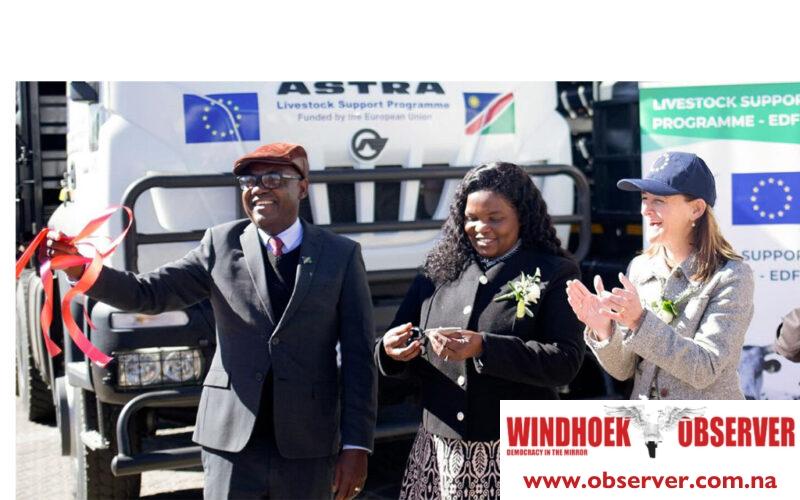Niël Terblanché
Five heavy-duty IVECO Astra trucks, each able to transport 30 tonnes of cattle across the country’s rural roads, were handed over to the ministry of agriculture, fisheries, water and land reform.
The trucks form part of the European Union’s (EU) Livestock Support Programme.
EU ambassador Ana Beatriz Martins said the handover was the result of months of coordination between the EU and the Namibian government.
“These trucks are part of the EU-Namibia Livestock Support Programme. They carry with them a powerful message of better market access, lower transport costs, improved animal welfare and stronger rural economies,” she said.
The N$20.68 million investment was funded under the 11th European Development Fund.
Martins emphasised that the initiative was not just about the trucks but also about the people who depended on livestock farming.
“It’s about people, farmers, families, and communities,” she said.
Since 2018, the EU programme has supported animal health campaigns, crush pens, loading ramps, and market access training.
“The new vehicles complete the chain by resolving the costliest link, transport from kraal to slaughterhouse,” Martins said.
She confirmed that more vehicles and infrastructure works are still coming and promised ongoing EU support for climate-smart agriculture and value-chain development across the country.
She encouraged farmers to use the trucks.
“Move your livestock safely, reach better markets, build your businesses,” she said.
The deputy minister of agriculture, Ruthy Masake, said each truck will be stationed at a government abattoir in the northern communal areas to reduce the distance animals must travel.
“These efforts will ensure that the trucks are put to optimal use from the outset,” she said.
Masake called on regional officers to schedule trips around peak marketing periods.
She explained that the ministry would offer the service at cost, allowing farmers to save on transport.
She said savings could improve carcass quality and raise producer earnings.
“Lower bruising and quicker delivery would lead to better grades and higher returns for communal herders,” she said.
National Planning Commission director general Kaire Mbuende said the trucks will empower farmers in the north-central cattle belt by reducing turnaround times and increasing mobility.
He stressed the importance of maintenance to ensure the vehicles serve farmers for years.
Mbuende estimated that private transport services can consume up to a third of a smallholder’s profit from livestock sales.
The trucks are expected to start operating in the north within the next two weeks, once drivers complete familiarisation runs on various Namibian roads.




